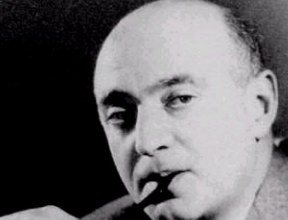 RETROSPECTIVE: Max Ophüls
RETROSPECTIVE: Max Ophüls Classical and Baroque
His real name was Max Oppenheimer. He was born in May 1902 in Saarbrücken, Germany, to a prominent Jewish garment manufacturer. However, young Max did not feel inclined to enter the family business; adopting the pseudonym Max Ophüls ?to save his strict father from embarrassment in case he failed- he began working as a journalist in 1919. He then made a jump to the theater, initially working as an actor and later on as producer. It was only ten years later, in 1929, just as the talkies were gaining ground, that Ophüls realized that his true calling was the cinema. However, the rise of the Nazis to power and the anti-Semitism that ensued forced him to emigrate to France in 1933. The war soon caught up with him, and Ophüls decided to follow several other filmmakers’ example and seek a new artistic home in the US in 1940. What followed was a six-year-long period of unemployment, as the German-Jewish director failed to fit in the Hollywood studio system. His ticket to Hollywood finally came in the form of Howard Hughes, whom he met through long-time admirer Preston Sturges. Ophüls returned to France in 1950, where he directed his four last films which are ranked among his masterpieces. He died in 1957.
Ophüls is known for his detailed camera work and elaborate shots. However, he was more than a mere stylist; his use of cinematic techniques intensifies the meaning engaging the viewer on a profound personal and emotional level. His mastery of the traveling technique gave his films a seamlessness underlying the essential fluidity of time, experiences and emotions, while his intricate frames and lighting heightened the symbolism and the subtle irony seen in many of his works. Max Ophüls made 22 films in 25 years and at least one third of them are considered masterpieces. This year the Athens International Film Festival brings you the best items in Ophüls’s filmography.
Nina Veligradi Liebelei (1933)
Liebelei (1933)It is the turn of the century and Vienna is immersed in music. Fritz, a young cavalier officer falls madly in love with Christine, but continues to pursue his affair with Baroness von Eggersdorff. When ...
 Letter from an Unknown Woman (1948)
Letter from an Unknown Woman (1948)?When you read this letter I’ll already be dead.? Thus begins a journey into the past and into the workings of a woman’s soul. The unknown woman is none other than Joan Fontaine, who gives a compelling ...
 The Reckless Moment (1949)
The Reckless Moment (1949)Moving away from his usual turn-of-the-century settings, Ophüls takes up a contemporary theme to achieve an ideal marriage between noir and melodrama. When her daughter’s lover is killed in an ...
 Caught (1949)
Caught (1949)"Careful what you wish for" people say. When over ambitious model Leonora (Barbara Bel Geddes) lands a millionaire husband, she thinks she’s finally made it. But little by little, the dream of a lifetime ...
 Roundabout - La Ronde (1950)
Roundabout - La Ronde (1950)Based on Arthur Schnitzler’s play Reignen, Roundabout is one of the most avant garde films ever made, as well as an exemplary adaptation of a stage work. Set in turn-of-the century Vienna, the film is ...
 Pleasure - Le plaisir (1952)
Pleasure - Le plaisir (1952)Based on three short stories by Guy de Maupassant ?‘old stories of modern times’ according to the narrator- Pleasure is structured around three vignettes exploring the theme of pleasure and the nature ...
 Madame De (1953)
Madame De (1953)Also known as The Earrings of Madame de?, Ophüls’s film follows the trail of a lost pair of earrings to accomplish a triumph of melodrama. Coquettish society lady Louise sells an expensive pair ...
 Lola Montes (1955)
Lola Montes (1955)Ladies and gentlemen, we bring you Lola Montes, the most scandalous woman in the world! This is the phrase that night after night opens Lola’s bawdy circus act. Taking over the role of the narrator, ...













